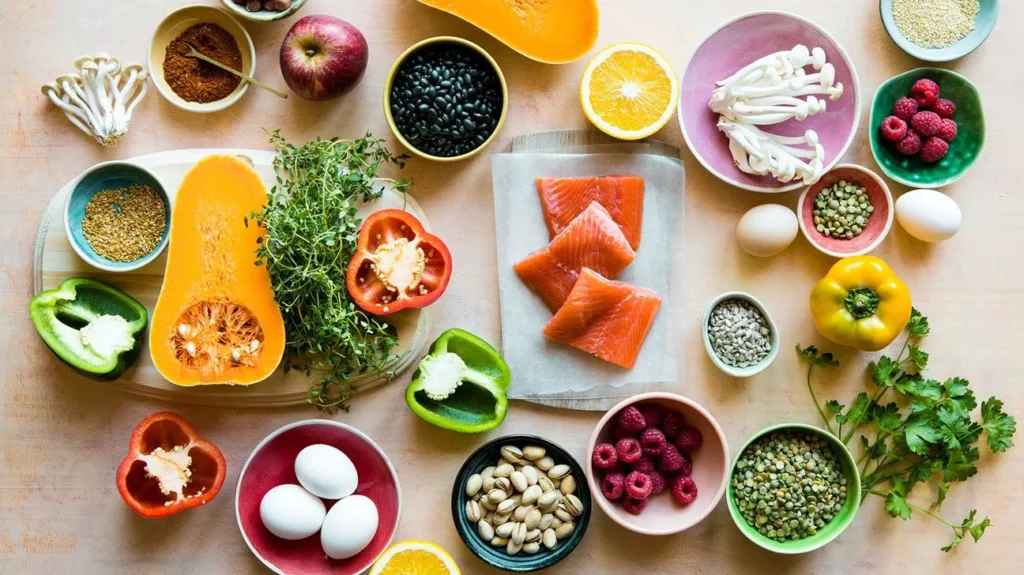Read time : 4 minutes

Breast cancer treatment isn’t just a medical journey, it’s also a physical and emotional marathon. Between chemotherapy sessions, hormonal therapies, and recovery phases, many people face fatigue, nausea, taste changes, and appetite loss. While treatment focuses on targeting cancer cells, the food you eat and how you eat can make a real difference in how your body copes, heals, and recovers. Lets discover how eating habits during breast cancer treatment affect energy and side effects.
Eating well during treatment isn’t about perfection, it’s about supporting your strength, energy, and overall resilience through small, mindful choices.
- Energy Levels and Fatigue, The Power of Consistent Eating
One of the most common side effects of breast cancer treatment is fatigue, the kind that sleep alone can’t fix. When appetite drops or nausea sets in, skipping meals becomes easy, but it can cause your blood sugar to dip, worsening the tiredness.
According to the American Cancer Society (ACS), keeping steady eating patterns, small, frequent meals every 3–4 hours, helps stabilize energy and prevent extreme fatigue. Gentle movement, like short walks after meals, can also boost energy circulation and mood.
The goal isn’t to eat more, but to eat regularly enough to keep your body fueled through the day.
- Managing Nausea and Taste Changes
Chemotherapy and radiation often alter how food tastes, sometimes metallic, bland, or just “off.” These changes can make even favorite foods unappealing.
The National Cancer Institute (NCI) recommends experimenting with different textures and temperatures, cooler foods like smoothies or yogurt may be easier to tolerate than hot, strong-smelling dishes. Sipping fluids throughout the day rather than all at once can also help manage nausea and dehydration.
The key is flexibility: what tastes unappealing today might be tolerable tomorrow.
- Supporting Immune Function Through Balanced Eating
Cancer treatments can weaken your immune system, leaving you vulnerable to infections. While no single food can “boost” immunity, consistent meals that include safe, clean, and minimally processed foods help your body fight back more effectively.
Good hygiene matters here, wash produce thoroughly, cook proteins well, and avoid raw seafood or undercooked eggs during treatment to minimize infection risk.
The American Institute for Cancer Research (AICR) emphasizes focusing on safe food handling and steady nourishment rather than restrictive eating.
- Hydration: The Unsung Hero
Treatment side effects like vomiting, diarrhea, and medication can cause dehydration, one of the most overlooked causes of low energy and headaches during therapy.
Aim for steady fluid intake throughout the day, not just water, but also options like infused water, or soups. Listening to your body’s thirst signals is important, but don’t wait until you feel thirsty to hydrate.
- Building a Supportive Mindset Around Food
Perhaps one of the most healing habits during treatment is learning to see food as support, not stress.
You don’t have to follow a perfect meal plan or eliminate every “bad” food. Instead, focus on how food makes you feel, energetic, comfortable, and capable. If you can only manage a few bites, that’s still nourishment.
Emotional support matters too. Eating with family or friends, when possible, turns meals into moments of connection, a quiet source of strength during difficult days.
What to Know About Breast Cancer Treatment and Diet
During breast cancer treatment, eating habits are not about restriction, but restoration.
Consistent, flexible eating patterns, alongside hydration, safe food handling, and mindful support, can reduce fatigue, ease nausea, and strengthen recovery. how eating habits during breast cancer treatment affect energy and side effects.
As the American Cancer Society notes, “Food is not just fuel during cancer treatment, it’s part of the therapy.”
So, go gently on your body. Listen to it. Nourish it. Each mindful meal is a step toward healing.
Meet Your Ai Personal Trainer
👉Personalized workouts. Progress tracking. Real results.
MyHealthCop AI is your pocket trainer — always ready, always smart.
Download the App to Take your free Ai health assessment Today [Take Assessment]
RD, LD Julius Sammah
MyHealthCop Certified Dietician